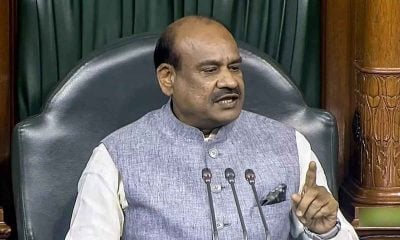The monsoon session of the Parliament drew to a close on Friday, August 10, as the ‘most productive’ one since the year 2000, according to a report by PRS Legislative Research (PRS).
The session had 18 scheduled sittings (July 18, 2018 to August 10, 2018), out of which one day was cancelled for a festival and another was adjourned after the obituary was read for Mr. Karunanidhi.
For the first in the 16th Lok Sabha, a no-confidence motion against the government was moved and discussed. This was the 27th no-confidence motion. The motion was discussed for 12 hours by 51 members, at the end of which the motion was defeated.
The election of the Deputy Chairman of the Rajya Sabha was also held with Mr. Harivansh Narayan Singh becoming the Deputy Chair.
During the session, Lok Sabha worked for 110% of its scheduled time, while Rajya Sabha worked for 66%. So far in the 16th Lok Sabha, the average productivity of Lok Sabha is 86% and that of Rajya Sabha is 67%. This was the most productive Monsoon Session of Lok Sabha since 2000. However, Rajya Sabha lost time due to disruptions (including on account of protests against Assam’s draft National Register of Citizens).
Nearly half the session time spent on legislative business: the highest in 16th Lok Sabha. Both Lok Sabha (50%) and Rajya Sabha (48%) spent the highest portion of their time on legislative business. This is the highest amount of time spent on legislative business by both Houses in the 16th Lok Sabha, second highest since 2004.
In this session, 20 Bills were introduced, of which 11 were passed by at least one House of Parliament. Out of the total Bills introduced, six were to replace Ordinances. These included Bills related to anti-trafficking, amendment to insolvency law, and change in punishment for rape. So far in the 16th Lok Sabha, 39 ordinances have been issued, i.e., an average of nearly 10 ordinances per year.
Fewer Bills are being referred to Parliamentary Committees (26%), as compared to the 15th Lok Sabha (71%) and the 14th Lok Sabha (60%). In this Session, the Ancient Monuments and Archaeological Sites and Remains (Amendment) Bill, 2017 and the Banning of Unregulated Deposit Schemes Bill, 2018 were referred to parliamentary committees.
In the 16th Lok Sabha, highest number of government Bills were introduced by the Ministry of Law and Justice and the Ministry of Health and Family Welfare. In the 15th Lok Sabha, highest number of Bills were introduced in Ministry of Finance, Ministry of Home Affairs and Ministry of Law and Justice.
Of the 68 Bills pending in the 16th Lok Sabha, the highest number of Bills were introduced by the Ministry of Law and Justice and the Ministry of Health and Family Welfare. These include the Muslim Women (Protection of Rights on Marriage) Bill, 2017, the Whistle Blowers Protection (Amendment) Bill, 2015, and the National Medical Commission Bill, 2017.
The session also saw one of the most productive Question Hours of the 16th Lok Sabha. Lok Sabha functioned for 84% of its scheduled Question Hour time while the Rajya Sabha functioned for 68% of its scheduled time.
The monsoon session also had highest number of Private Member Bills (999) introduced in Lok Sabha since 2000. Though nearly 1000 Bills were introduced in the 16th Lok Sabha, less than 10 were taken up for discussion, for a total of 50 hours. No Private Member Bill has been enacted into law since 1970.
Rajya Sabha discussed issues related to the misuse of social media to spread violence, the final draft of the National Register of Citizens in Assam, and the non-implementation of the Andhra Pradesh Re-organization Act, 2014.
Lok Sabha discussed the flood and drought conditions in the country. In addition, the Supplementary Demands for Grants 2018-19 were discussed in Lok Sabha.
The Personal Laws (Amendment) Bill, 2018 was introduced in Lok Sabha on Friday. It amends several existing Acts such as the Divorce Act, 1869, the Hindu Marriage Act,1955, and the Special Marriage Act, 1954. The Bill amends these Acts to remove leprosy as grounds for divorce.
The Arbitration and Conciliation (Amendment) Bill was passed in Lok Sabha. The Bill amends the Arbitration and Conciliation Act, 1996. It includes provisions to establish an independent body called Arbitration Council of India (ACI) to promote arbitration, mediation and provide a redressal mechanism.























